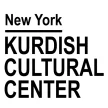Cigerxwîn, Kurdish poet
 Cigerxwîn or Cegerxwîn (1903 –1984) was a Kurdish poet. His work has been so influential that he is known as the father of Kurdish literature and the “poet of freedom.”
Cigerxwîn or Cegerxwîn (1903 –1984) was a Kurdish poet. His work has been so influential that he is known as the father of Kurdish literature and the “poet of freedom.”
He was born Şêxmûs Hesen to a Yezidi mother in Hesar, near Batman, in 1903. He lost both of his parents while he was still a child. In 1914, he and his sister fled to Amûdê, in present-day north-eastern Syria, as refugees. He studied theology and became a cleric in 1921. While in Amûdê, he and his compatriots established a Kurdish association.
In 1924 he began writing poetry, about the harsh realities of life in Kurdistan. After the collapse of the Şêx Seîd rebellion in 1925, a brutal crackdown caused him and many other Kurdish intellectuals to flee to Syria. There joined the Xoybûn (Independence) party, founded by Celadet Bedîrxan and others. He contributed poems about revolution, oppression, resistance, and love to the Kurdish journal Hawar, edited by Bedîrxan.
In poems written in Kurmanci, he addressed the inequal distribution of power in society and criticized the powerful forces that were responsible for the suffering of Kurdish workers and peasants. He especially targeted feudal rulers (aghas and begs) who with their large landholdings exploited the people, as well as the religious aristocracy (sheikhs and mullahs). In his view, they prevented the Kurdish people from achieving freedom and national conscoiusness. He considered it a priority to enlighten the Kurdish people about the social situation. Hence his poetry is simple and revolutionary with a strong popular appeal. He published the first of what would be eight collections of poetry in 1945 in Damascus
In 1946 Cigerxwîn moved to Qamişlo and became the secretary of Civata Azadî û Yekîtiya Kurd (Kurdish Freedom and Union Front). In 1948 he joined the Communist Party of Syria but in 1957 he left the party to create the Azadî (Freedom) organization. This new group later united with the Kurdish Democratic Party of Syria.
In 1959 Cigerxwîn moved to Baghdad. There in 1961, at the University of Baghdad, he created a new Kurdish language department, focused on Kurmanji. He wrote and published Destûra Zimanê Kurdî (The Grammar of Kurdish Language), 1961; Ferheng, perçê yekem (Kurdish Dictionary, part one), 1962; and Ferheng, perçê diwem (Kurdish Dictionary, part two), 1962. During this period, he also worked in the Kurdish section of Radio Baghdad.
He left Baghdad in 1963 due to increasing repression. That year, while in Damascus, he was arrested and imprisoned. He was then exiled to the city of Suwayda. In 1969 he moved back to Iraqi Kurdistan, where he became involved in the Kurdish uprising led by Mustafa Barzanî. In 1973 he fled to Lebanon, where he published his poetry collection Kîme Ez? (Who Am I?). (The poem of that name is here.) In 1976, he returned to Syria, but in 1979 he fled to Sweden, where he published several more poetry collections.
He died in Stockholm on October 22, 1984, at the age of 81. His body was returned to Syria, and he was buried in the garden of his house in the Xerbî district of Qamişlo. After his death, in 1985-87, the three-volume history of Kurdistan (Tarîxa Kurdistan) that he had written was published in Stockholm.















